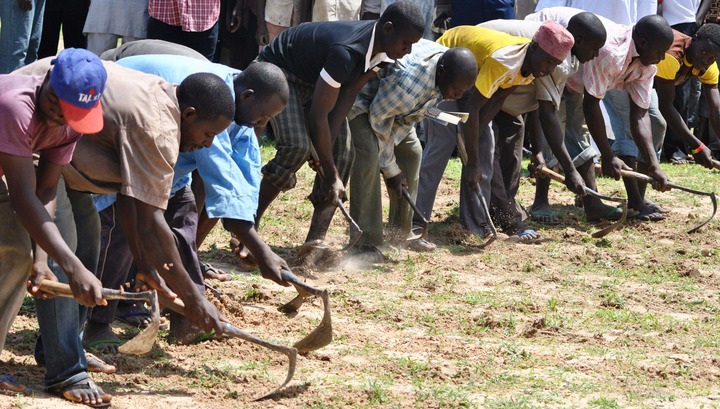Prof. James Adediran, the Executive Director, Institute of Agricultural Research and Training (IAR&T) in Ibadan, has advised government to purchase excess farm products from farmers and store for the future.
This, he said, would help to mop up excess farm products for future sale.
Adediran, who spoke to the News Agency of Nigeria (NAN) in Ibadan on Monday, urged the Federal Government, banks, corporate organisations and rich individuals to also help in this regard.
He said that these agencies should help to develop the agriculture sector by purchasing excess farm produce and store in silos as reserves for future sale.
The executive director said this would help to avoid gluts and huge financial losses by farmers during periods of bumper harvest.
“There is also the need to seek for alternative markets outside the glut areas or zones. Processing farm produce into different acceptable products is also necessary.
“There is also need for regulation of produce supply into markets through the establishment of a body, such as commodity board, “he said.
He said that the institute had continued to research into areas that would help farmers make crop production easier and faster.
“We have developed new technologies in the areas of cultural operations, land preparation, planting, pesticide, fertiliser application, harvesting, processing and storage techniques and livestock production.
“We disseminate the above techniques to farmers through extension workers, we also develop and disseminate new varieties of mandate crops such as maize, cow pea, soya bean and kenaf etc.
“We also develop and disseminate technologies in soil management and land use,” he said.
The agriculture expert said: “in 2016, the institute’s scope of research widened as more than 1000 farmers and stakeholders were impacted through capacity building, empowerment programmes.
“The institute also organised 10 various workshops/training; production technologies were disseminated to the public through jingles on radio, TV, publications.
“Meanwhile, no fewer than 500 farmers obtained seeds from the institute through either direct purchase at subsidised rate. (NAN)
CC/KOLE/TA


